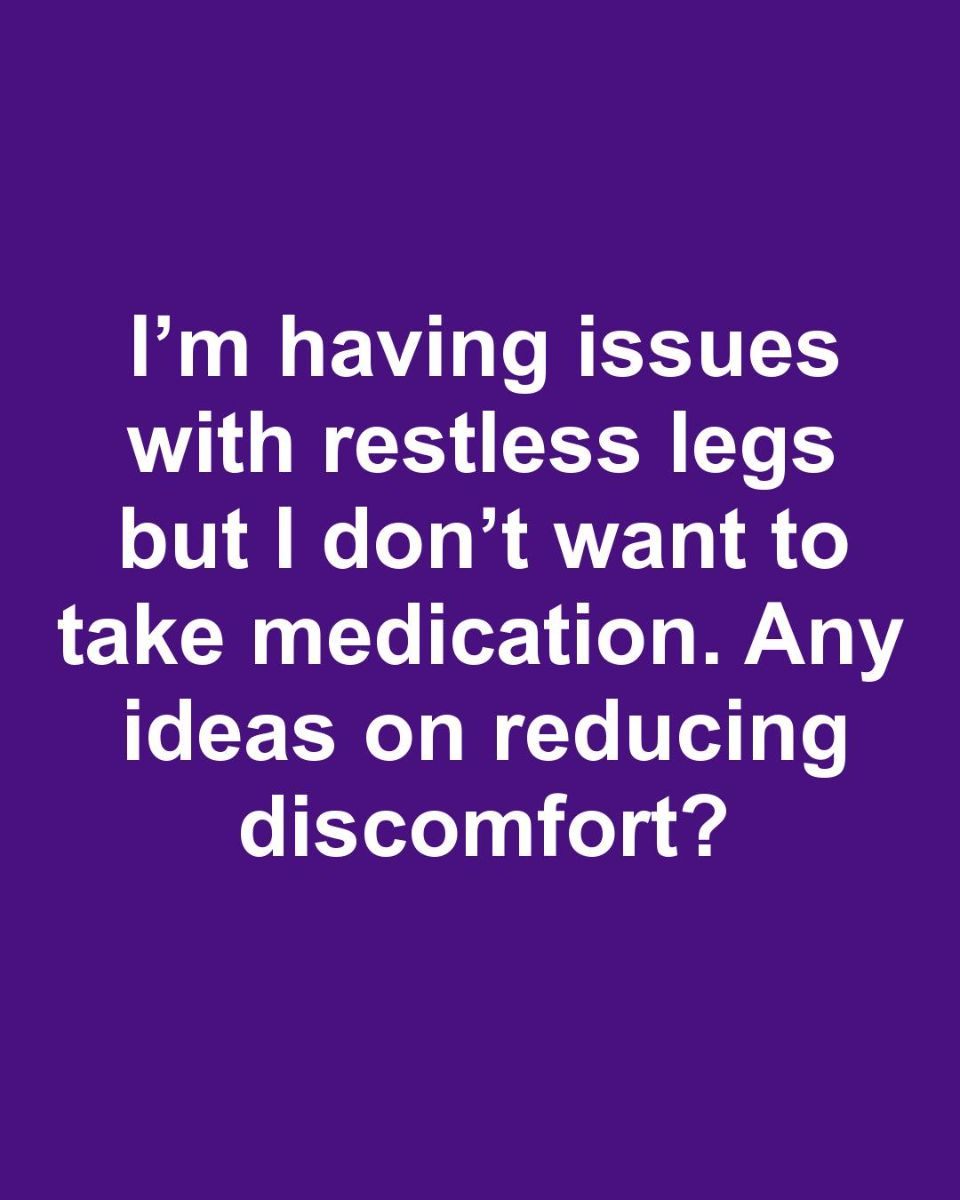ADVERTISEMENT

I didn’t know about this
Diet plays a crucial role in managing RLS. Ensuring adequate intake of iron, magnesium, and folate can help reduce symptoms. Foods rich in these nutrients include leafy greens, nuts, seeds, and lean meats. It’s also advisable to limit or avoid caffeine and alcohol, as they can exacerbate RLS symptoms. Staying hydrated and maintaining a balanced diet can contribute to overall well-being and symptom management.
The Role of Exercise in Managing Symptoms
Regular physical activity can help reduce the severity of RLS symptoms. Low-impact exercises such as walking, swimming, or cycling are particularly beneficial. Stretching and yoga can also promote relaxation and improve circulation. It’s important to avoid overexertion, as intense exercise can sometimes worsen symptoms. A consistent exercise routine tailored to your fitness level can help manage RLS effectively.
Relaxation Techniques to Soothe Restless Legs
Relaxation techniques such as meditation, deep breathing exercises, and progressive muscle relaxation can help calm the nervous system and reduce RLS symptoms. Practicing mindfulness and stress-reduction techniques can also be beneficial. Warm baths, massages, and using heating pads or cold packs on the legs can provide temporary relief from discomfort.
The Impact of Sleep Hygiene on Restless Legs
Good sleep hygiene is essential for managing RLS. Establishing a regular sleep routine, creating a comfortable sleep environment, and minimizing exposure to screens before bedtime can improve sleep quality. It’s also helpful to practice relaxation techniques before bed to promote restful sleep. Avoiding large meals and caffeine close to bedtime can further enhance sleep hygiene.
Alternative Therapies and Natural Remedies
Several alternative therapies and natural remedies may help alleviate RLS symptoms. Acupuncture, chiropractic care, and reflexology have shown promise for some individuals. Herbal supplements such as valerian root, chamomile, and passionflower may promote relaxation and improve sleep. It’s important to consult with a healthcare professional before trying new supplements or therapies to ensure they are safe and appropriate for your situation
When to Seek Professional Help
If RLS symptoms persist despite lifestyle changes and non-medication approaches, it may be time to seek professional help. A healthcare provider can conduct a thorough evaluation to rule out underlying conditions and recommend appropriate treatment options. In some cases, medication may be necessary to manage symptoms effectively. Early intervention can prevent complications and improve quality of life.
Resources
RemedyDaily.com does not give medical advice, diagnosis, or treatment.